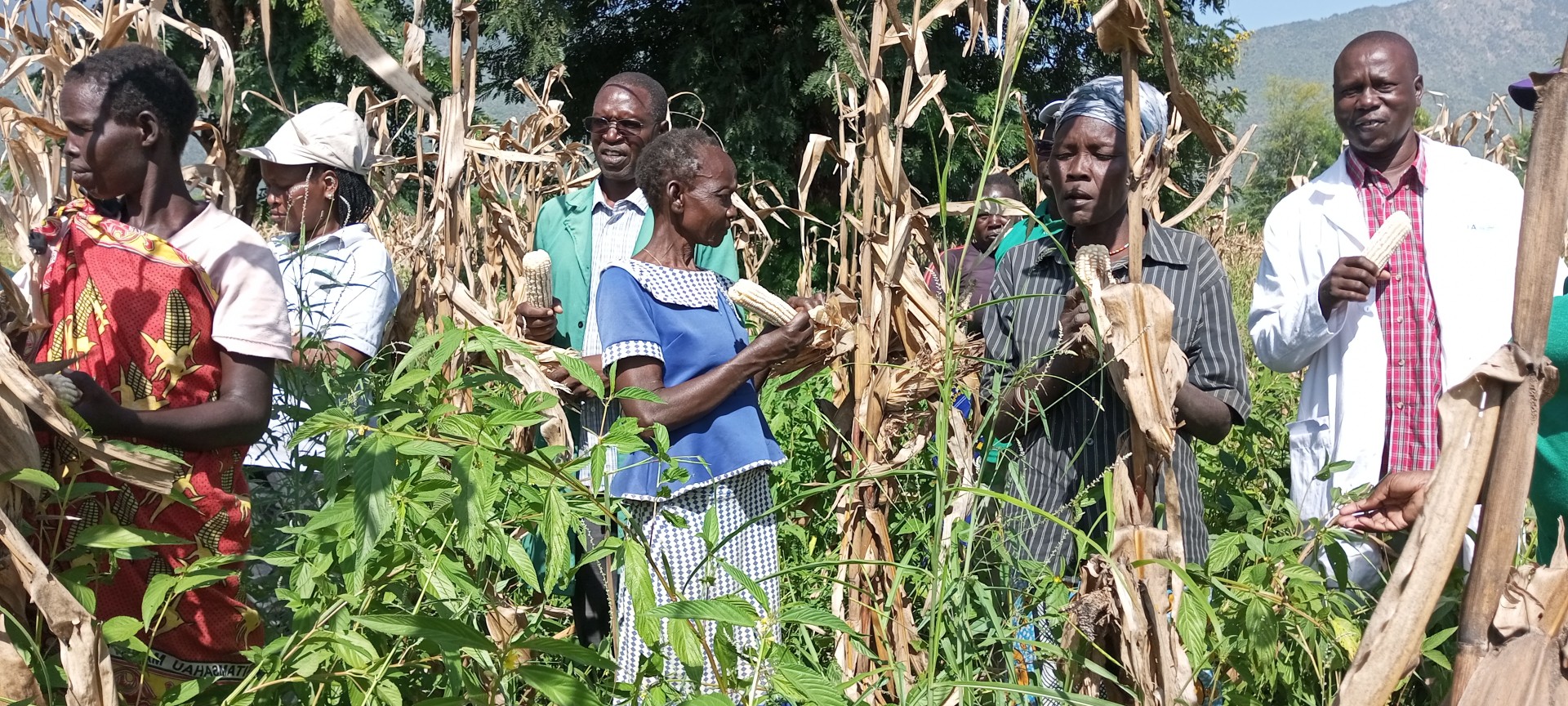The Weiwei Irrigation Scheme, started over three decades ago in West Pokot County is contributing to steady food supply in the region, producing more than 80 tonnes of food and seeds annually.
The region classified as the semi-arid zone, initially relied on relief food owing to poor rainfall patterns leading to crop failure, but the irrigation scheme has now become a reliable income generator for residents, with farmers drawing between Sh80 to Sh100 million annually.
Speaking in Sigor Wednesday, Kerio Valley Development Authority (KVDA) Managing Director (MD) Sammy Naporos stated that the scheme has boosted social economic activities in terms of access to food, employment creation, health and education.
Naporos said the scheme is premised on maize seed production through irrigation, whose product is sold to Kenya Seed Company Limited.
The project is good for socio-economic development which has seen opening up of the region, once known for cattle rustling and banditry.
“The project was set up to mitigate drought and cattle rustling in ASAL areas and is currently supporting more than six constituencies in the North Rift region in terms of food security. It is one of the transformative projects in the country and it is recording high yields,” said Naporos.
The MD noted that there has been a challenge in accessing certified seeds and through KVDA and farmer cooperatives, famers have been able to embark on the production of quality seeds, which yields higher returns than the normal ones.
Naporos said the irrigation scheme has helped upgrade residents’ living standards, since they sell their produce at good prices.
“Most of the farmers under the irrigation scheme are able to raise school fees for their children without difficulties because of the handsome pay they earn from the scheme. We are committed to see that residents no longer rely on relief food,” he reiterated.
He said that the authority was modernizing farming in the region to ensure farmers access and compete on international markets.
“We cannot rely on rain-fed agriculture as rainfall is unpredictable and uncertain. We must support farmers to excel. The farmers have now embraced new farming technologies to increase and boost food production after the programme was revived in 2013,” he said.
Naporos revealed that currently the scheme has 550 acres of land supporting 275 households for phases one and two, but they have since embarked on phase three targetting700 acres, where contractors are already on site.
Towards realization of Vision 2030, the MD says, the scheme is helping in improving the nutritional aspects of the residents.
“We are going to transform Kapenguria, Tiaty and Kacheliba, Lokichar and lower part of Turkana and Lokichar. There are other components of value addition, shelling of maize at the seeds processing plant and farmers are able to do grading of seeds before taking them for packaging,” explained Naporos.
He said that the scheme has been rated among the best in the entire country, with farmers having plans to establish their own seed packaging in the area.
The scheme has been significant in bringing cohesion between warring communities, arising from cattle rustling, thus food production and availability will support the initiative.
“Sigor was a corridor for cattle rustlers. The scheme will help in uplifting the lives of residents in Tiaty, Kacheliba and Turkwel to curtail and reduce cattle rustling. It has helped in the establishment of Sigor town,” he revealed.
For diversification and improvement of the ecosystem in the area, Naporos highlighted that the scheme has 2 million mango seedlings and other fruits to support agro-forestry and nutrition.
“We want to mitigate the effects of climate change because the area has been experiencing flash floods that affect production. The trees act as the vegetation cover on the dilapidated land in the Cherangany ecosystem,” he pinpointed.
Weiwei Irrigation Scheme Vice Chair David Chepkisia affirmed that the scheme has saved residents from the pangs of hunger that characterized the area and as farmers they have been economically empowered.
Chepkisia said the farm under irrigation is still small to meet the growing demands of the increasing households in the area.
He called on the government to speed up the implementation of the Phase 3 of the project to help completely eliminate hunger in the region.
“We sell the maize seeds at Sh74 per kilo. We eat the male and plant the female maize seeds,” he said.
Chepkisia the project has empowered so many residents and most households seldom depend on fundraisers to meet their basic needs.
“Most of the beneficiaries have built their homes, offering jobs to other people from other areas and cases of hunger and cattle rustling have been greatly minimized,” he said.
An agronomist Mr. David Tanui noted that they have planted 2000 tree seedlings among them apples and mango varieties such as Ngowe, Van Dyke, Kent and Tommy Atkins, among others.
The scheme, which is under irrigation supported by KVDA, with funds from the Italian Government was initiated in 1984 and revived in 2013 after collapsing for four planting seasons.

